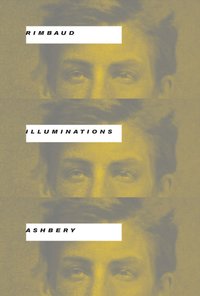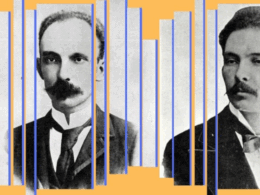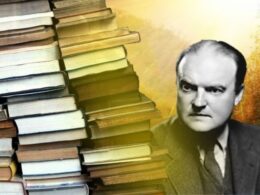This week marks the publication by W. W. Norton of John Ashbery’s new translation of Arthur Rimbaud’s Illuminations. “It is fitting,” Harold Bloom writes, “that the major American poet since Hart Crane and Wallace Stevens should give us this noble version of the precursor of all three.” In the introduction to his interview with Ashbery in the April Boston Review, Adam Fitzgerald echoes Bloom’s sentiment:
Despite his short writing life, Rimbaud looms so large it is impossible to underestimate his impact on the poetry and poets of the last century—Ezra Pound translated him, T. S. Eliot borrowed from and reformulated him, and Hart Crane, in his more ecstatic moods, boasted of himself, “I am Rimbaud come again!”

For Ashbery Rimbaud embodied what as a high school student he was beginning to discover about modern poetry. As he tells Claude Peck in the Spring issue of Rain Taxi, even in English the second line of the first Rimbaud poem he read—“what soul is without its flaw?” from “O Saisons, O Chateaux”—seemed to young Ashbery “to be poetry for me as I hadn’t seen it before.”
In 1955 a Fulbright Fellowship enabled Ashbery to move to France where he lived for the next ten years, deepening his knowledge of all things French and, as he told Paul Auster at last year’s Brooklyn Book Festival, “completely changing my life,” developing what Gertrude Stein called “a unique view of my own Americanness” and “a kind of ‘other’ muscle for writing that helped me in ways I wouldn’t have anticipated.”
In the Rain Taxi interview Ashbery explains Rimbaud’s continuing appeal, especially to music icons like Jim Morrison, Patti Smith, and Bob Dylan:
Rimbaud has always appealed to misfits and delinquents, who are very often poets. Poets are very often of those persuasions. And he was so utterly an outlaw, in such a profound sense of the term. His bisexuality, for instance, if that’s what it was—he wasn’t even homosexual, as far as I know. Verlaine seems to have been his only male lover, and he lived with a mistress in Africa. He doesn’t seem to have ever thought about, “am I straight, am I gay?” or whatever, but just went about living each day as it came along, with its own set of questions and phenomena. He could be a real shit, too. These are all things that, how shall I say, delinquent poets glom on to and start running with. Also the fact that his poetry is totally un-paraphraseable is something that I and many other poets are trying to achieve—something that can be said in no other way, at which point it becomes poetry.
Rimbaud wrote the poems in Illuminations in prose. Fitzgerald and Ashbery explore when prose becomes poetry in the Boston Review interview:
Fitzgerald: So what’s the difference, in your opinion, between prose and prose poetry?Ashbery: I think one has to look for or be awake to the sudden appearance of poetry in prose. I’ve mentioned this when people ask me what I was trying to do in Three Poems. My answer was I wanted to call attention to the poetic quality of prose that seems totally prosaic, and which can sometimes suddenly grab and move you to tears while reading a newspaper or a timetable or a guide book, and penetrate that source of the awe with which we respond to poetry.
“This is the book that made poetry modern,” J. D. McClatchy writes about Illuminations, “and John Ashbery’s sizzling new translation lets Rimbaud’s eerie grandeur burst into English.” Ashbery closes the book’s preface with his own summation of what Rimbaud means to us today: “If we are absolutely modern—and we are—it’s because Rimbaud commanded us to be.”
Watch John Ashbery with Paul Auster (at the 2010 Brooklyn Book Festival) discussing why he went to live in France, its impact on his writing, and why he translates.



